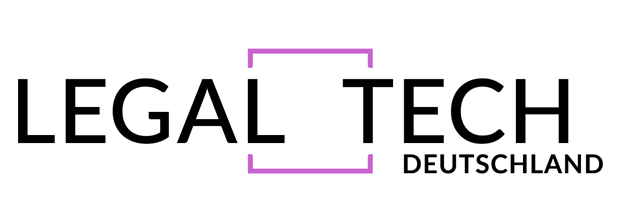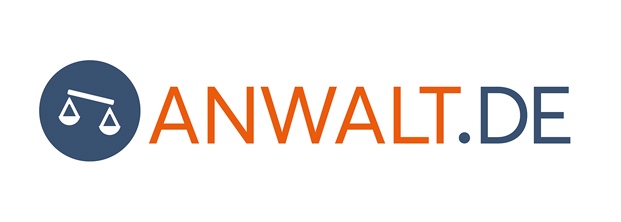Das deutsche Arbeitsrecht erlebt seit dem 1. Januar 2025 eine bedeutende Modernisierung: Das Nachweisgesetz wurde grundlegend reformiert und ermöglicht erstmals umfassende digitale Lösungen in der Personalarbeit. Diese Änderungen revolutionieren die Art und Weise, wie Unternehmen mit ihren Mitarbeitern kommunizieren und Verträge abschließen. Was genau sich ändert und welche Auswirkungen dies auf die tägliche HR-Praxis hat, erfahren Sie in diesem umfassenden Überblick.
Was ist das Nachweisgesetz und warum wurde es reformiert?
Das Nachweisgesetz existiert bereits seit 1995 und regelt die Pflicht von Arbeitgebern, ihren Angestellten einen schriftlichen Nachweis über die wesentlichen Arbeitsbedingungen zu erteilen. Bisher war diese Dokumentation ausschließlich in Papierform mit handschriftlicher Unterschrift zulässig – ein zeitaufwändiger Prozess, der in der digitalen Arbeitswelt zunehmend als hinderlich empfunden wurde.
Die Reform des Nachweisgesetzes erfolgte als Teil des Bürokratieentlastungsgesetzes IV und setzt die europäische Richtlinie über transparente und vorhersehbare Arbeitsbedingungen um. Ziel ist es, die Personalarbeit zu digitalisieren und gleichzeitig den Schutz der Arbeitnehmer zu gewährleisten. Diese Modernisierung entspricht den Bedürfnissen einer zunehmend digital organisierten Arbeitswelt.
Digitale Revolution: Von der Schriftform zur Textform
Die wichtigste Neuerung des reformierten Nachweisgesetzes ist der Übergang von der strengen Schriftform zur sogenannten Textform gemäß § 129b BGB. Dieser Wandel macht den digitalen Abschluss von Arbeitsverträgen erstmals problemlos möglich, ohne dass der aufwändige Postweg für den Austausch von Originalunterschriften erforderlich ist.
Konkret bedeutet dies, dass Arbeitgeber ihre Nachweispflichten nun erfüllen können durch:
- E-Mails mit Anhängen
- PDF-Dokumente ohne physische Unterschrift
- Telefaxe
- SMS und andere Textnachrichten
- Digitale Dokumentenmanagementsysteme
Wichtig ist dabei, dass der Arbeitnehmer den Zugang des Dokuments bestätigen muss und der Arbeitgeber diese Zugangsbestätigung sorgfältig aufbewahrt. Dies stellt sicher, dass beide Parteien über den Inhalt der Arbeitsbedingungen informiert sind.
Welche Inhalte müssen weiterhin nachgewiesen werden?
Die inhaltlichen Anforderungen des Nachweisgesetzes bleiben trotz der Formerleichterungen bestehen. Arbeitgeber müssen ihre Mitarbeiter über folgende wesentliche Arbeitsbedingungen informieren:
Grundlegende Vertragsdaten
- Namen und Anschriften der Vertragsparteien
- Beginn des Arbeitsverhältnisses und bei Befristungen das konkrete Enddatum
- Arbeitsort und eventuelle Möglichkeiten zum mobilen Arbeiten
- Beschreibung der Tätigkeit
Vergütung und Arbeitszeit
- Zusammensetzung und Höhe des Entgelts einschließlich aller Zuschläge
- Regelungen zur Arbeitszeit und zu Ruhepausen
- Vergütung von Überstunden
- Bei Schichtarbeit: Details zum System und möglichen Änderungen
Urlaub und Fortbildung
- Dauer des jährlichen Erholungsurlaubs
- Ansprüche auf betriebliche Fortbildung
- Informationen zur betrieblichen Altersversorgung
[h3]Kündigungsmodalitäten im Arbeitsrecht[/h3]
Ein besonders wichtiger Punkt betrifft die Kündigung: Arbeitnehmer müssen über die einzuhaltenden Kündigungsfristen, das erforderliche Verfahren und insbesondere über die Frist zur Erhebung einer Kündigungsschutzklage informiert werden. Diese Transparenz stärkt die Rechtssicherheit beider Parteien und verhindert spätere Streitigkeiten im Arbeitsrecht.
Ausnahmen und Sonderregelungen
Trotz der grundsätzlichen Digitalisierung gibt es wichtige Ausnahmen, die Unternehmen beachten müssen:
Branchen mit Schriftformerfordernis
In bestimmten Wirtschaftsbereichen, die als besonders gefährdet für Schwarzarbeit gelten, bleibt die Schriftform weiterhin zwingend erforderlich. Dazu gehören:
- Baugewerbe
- Gaststätten- und Beherbergungsgewerbe
- Transport- und Logistikgewerbe
- Gebäudereinigung
- Fleischwirtschaft
- Wach- und Sicherheitsdienste
Individualwunsch des Arbeitnehmers
Jeder Arbeitnehmer kann ausdrücklich verlangen, den Nachweis in traditioneller Schriftform zu erhalten. In diesem Fall muss der Arbeitgeber diesem Wunsch nachkommen und ein Papierdokument mit handschriftlicher Unterschrift erstellen.
Kündigungen bleiben schriftlich
Für die Beendigung von Arbeitsverhältnissen durch Kündigung oder Aufhebungsvertrag bleibt nach § 623 BGB die Schriftform zwingend erforderlich. Eine digitale Kündigung ist weiterhin unwirksam.
Praktische Umsetzung und Fristen
Die Reform des Nachweisgesetzes bringt unterschiedliche Fristen mit sich, je nachdem, ob es sich um neue oder bestehende Arbeitsverhältnisse handelt:
Bei Neueinstellungen
Für alle Arbeitsverträge, die seit dem 1. August 2022 geschlossen wurden, gelten automatisch die Nachweispflichten:
- Grundlegende Informationen (Name, Gehalt, Arbeitszeit): spätestens am ersten Arbeitstag
- Weitere Details (Arbeitsort, Tätigkeitsbeschreibung): binnen sieben Kalendertagen
- Vollständige Dokumentation: innerhalb eines Monats
Bei bestehenden Arbeitsverhältnissen
Für Verträge, die vor dem 1. August 2022 geschlossen wurden, besteht die Nachweispflicht nur auf ausdrückliches Verlangen des Arbeitnehmers. Wird ein solcher Nachweis angefordert, gelten die gleichen Fristen wie bei Neueinstellungen.
Rechtliche Konsequenzen und Kontrollen
Die Nichterfüllung der Nachweispflichten kann seit 2022 als Ordnungswidrigkeit mit Bußgeldern von bis zu 2.000 Euro je Verstoß geahndet werden. Die Kontrolle erfolgt durch die örtlichen Kreisverwaltungsbehörden, die entsprechende Prüfungen durchführen können.
Wichtig zu wissen: Die fehlende Vorlage eines Nachweises hat keine Auswirkungen auf die Gültigkeit des Arbeitsvertrags selbst. Das Arbeitsverhältnis bleibt bestehen, auch wenn formelle Nachweisfehler vorliegen.
Fazit: Digitale Zukunft mit bewährten Schutzstandards
Die Änderungen im Nachweisgesetz ermöglichen es Unternehmen erstmals, ihre Vertragsprozesse vollständig digital und damit effizienter sowie zeitgemäßer zu gestalten. Die Reform stellt einen wichtigen Schritt in der Modernisierung des deutschen Arbeitsrechts dar und erleichtert sowohl Arbeitgebern als auch Arbeitnehmern den Umgang mit Arbeitsverträgen erheblich.
Gleichzeitig bleiben die bewährten Schutzstandards für Arbeitnehmer erhalten: Der Anspruch auf vollständige Information über die Arbeitsbedingungen besteht weiterhin, und in kritischen Bereichen wie der Kündigung oder bei gefährdeten Branchen gelten nach wie vor strenge Formvorschriften.
Unternehmen sollten die neuen Möglichkeiten nutzen, um ihre HR-Prozesse zu modernisieren, dabei aber sorgfältig auf die korrekte Umsetzung der gesetzlichen Anforderungen achten. Eine professionelle Beratung kann dabei helfen, die Vorteile der Digitalisierung voll auszuschöpfen und gleichzeitig rechtliche Risiken zu minimieren. Kontaktieren Sie Rotwang Law für eine kostenlose Ersteinschätzung.





